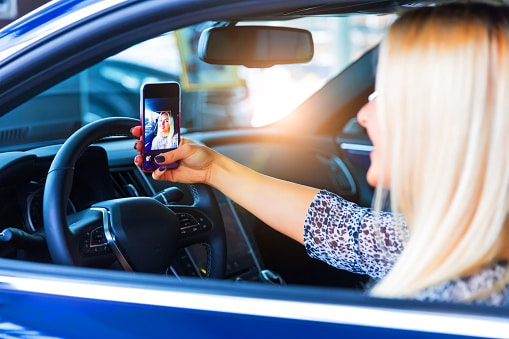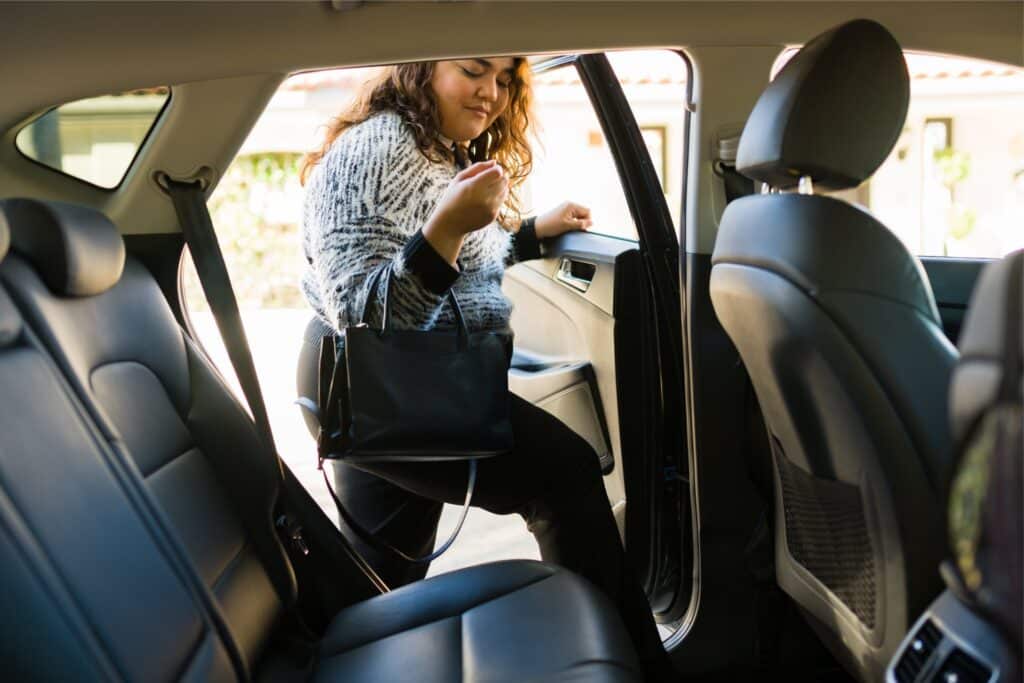
Distracted driving, sadly, is becoming the new normal on Portland roads. It seems like everywhere you look, you see drivers engaged in a slew of activities other than driving.
The truth is, nobody has the ability to safely drive distracted. Yet so many drivers are confident in their ability to do so. For some drivers, distraction has become so habitual that they feel comfortable picking up their phone or multitasking behind the wheel without any safety concerns.
How prevalent is distracted driving in Oregon?
The Oregon Department of Transportation (ODOT) defines distracted driving as “when a driver diverts attention to something not related to driving that uses the driver’s eyes, ears or hands.”
ODOT also identifies four types of distracted driving. In most cases, more than one of these is involved in distraction:
- Visual — Taking your eyes off the road to look elsewhere
- Auditory — Listening to loud music or other sounds not related to driving
- Manual — Taking your hands off the wheel
- Cognitive — Daydreaming or taking your mind off of driving
From 2013-2017, distracted driving was a factor in more than 12,000 fatal and injury crashes across the state of Oregon. In approximately 1,089 crashes, a driver involved in the accident was found to have been using a cellphone.
In order to curb distracted driving in Oregon, a law was passed banning the use of cellphones and handheld devices behind the wheel. While this may help cut down on crashes caused by cellphone use, drivers often find other ways to get distracted — and it doesn’t always involve handheld devices.
What other forms of distraction do drivers engage in?
Let’s start with built-in infotainment technology, which affords drivers the luxury of apps, navigation, music streaming and communication built into their dashboard. It now comes standard on many new vehicles.
Infotainment technology can be especially dangerous because it gives motorists a false sense that they can safely use it while driving. Just like cellphones, however, the use of infotainment systems requires drivers to take their hands off the wheel, eyes off the road, and mind off driving to perform brief tasks. Something as brief as switching a song on a music streaming app can cause enough distraction to result in a serious crash.
Drivers who are running late for work or juggling several other obligations may find themselves multitasking behind the wheel. This could include eating and drinking, filling out paperwork, grooming, and taking care of personal hygiene. Some drivers have even been seen engaging in egregious activities, like reading a book or exercising while driving.
If you or a loved one was hurt in a crash because another driver was focused on a task other than driving, you have legal rights that must be upheld. That’s why you should get an experienced Portland car accident attorney on your side who knows how to hold distracted drivers accountable and take on stubborn insurance companies.
Set up your free consultation with Zbinden & Curtis, Attorneys At Law today. Contact us online to get started.
This entry was posted on Tuesday, October 22nd, 2019 at 7:01 pm and is filed under Car Accidents. You can follow any responses to this entry through the RSS 2.0 feed. You can leave a response, or trackback from your own site.









